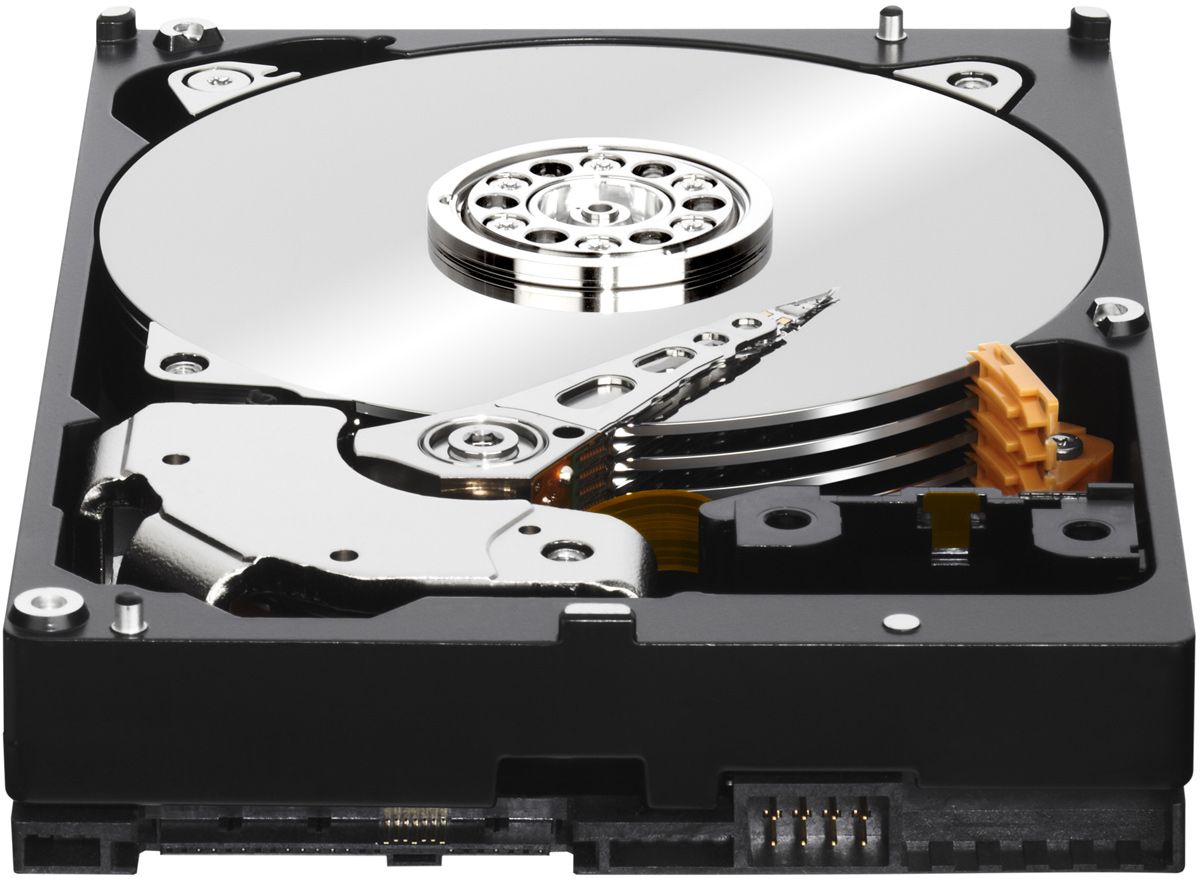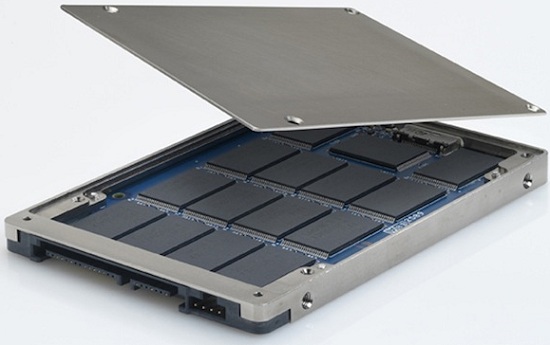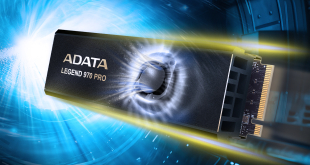Seagate Technology claims that no matter how cheap NAND flash memory will get in the coming years, it will never be able to match the per-gigabyte price of rotating magnetic media used in hard disk drives. In fact, the price of one gigabyte on a HDD will decrease to half of a penny over the next five years, according to one of the world’s largest makers of hard drives.
Prices of solid-state drives have declined dramatically in the recent years because NAND flash got significantly cheaper as a result of numerous technological breakthroughs and tough competition between several players. SanDisk Corp. and Toshiba Corp. predict that by 2020 the cost of non-volatile memory will decline so significantly that enterprise-class SSDs will match prices of enterprise-class hard disk drives in terms of per-gigabyte price. Seagate strongly disagrees with this prediction.
“In fact, the disparity between the cost on a dollar per gigabyte is upper to 20 to 1 [right now],” said Dave Morton, senior vice president of finance at Seagate, at Citigroup’s global technology conference. “I personally will never foresee the day, […] when there is a crossover [between the per-gigabyte cost of NAND and rotating magnetic media]. In 2020 we [will] have drives in the portfolio that will be less than half a penny per-gigabyte. I just don’t see how you could get that from the competing technology.”
Today, an inexpensive consumer-class 3TB HDD costs around $100, or about $0.033 (3 cents) per-gigabyte. A low-cost 120GB SSD retails for approximately $70, which means that its per-gigabyte cost is around $0.58 (58 cents). There is a different arithmetic for datacentre-class SSDs and HDDs, but the per-gigabyte price difference between the two kinds of storage devices is still huge.
However, for many datacentre applications per-gigabyte cost does not really matter. What matters is the amount of read/write input/output operations per second (IOPS) a storage solution can perform, its maximum bandwidth and power consumption. SSDs are orders of magnitude faster than HDDs in terms of IOPS (the fastest 15K RPM HDDs support around 200 IOPS, whereas modern high-end SSDs declare around one million IOPS) and they provide significantly higher bandwidth. For many datacentre applications today, HDDs are irrelevant. However, for cold storage and archive applications SSDs are too expensive, which is why datacentres use both solid-state drives and hard disk drives to store different kinds of data.
Many client devices do not require a lot of storage. Moreover, hard drives cannot be used inside tablets or 2-in-1 hybrid PCs. As the adoption of such devices increases, demand for client HDDs decreases. However, since cloud applications are getting more widespread, datacentres need more storage space, which is why they keep buying server-class HDDs, bolstering revenues of Seagate, Western Digital Corp. and Toshiba Corp.
“The company has done a nice and elegant job over the last five years managing that shift from declining client PC compute over into more rich, centred, profitable product lines, such as the enterprise,” said Mr. Morton.
Discuss on our Facebook page, HERE.
KitGuru Says: When it comes to storage capacity and per-gigabyte price, hard disk drives will likely continue to be unchallenged for many years to come. However, where performance matters and capacities do not, SSDs will replace HDDs despite of any per-gigabyte price disparity. Those, who need both performance and capacity will continue to use different types of storage devices going forward, just like PC enthusiasts do today.
 KitGuru KitGuru.net – Tech News | Hardware News | Hardware Reviews | IOS | Mobile | Gaming | Graphics Cards
KitGuru KitGuru.net – Tech News | Hardware News | Hardware Reviews | IOS | Mobile | Gaming | Graphics Cards





I dunno i reckon it will as i think with SSD they seem to getting larger a lot quicker then HDD drives are. Fact is though at some point it will come a time Where the SSD drives are large enough…and cheap enough that people may start choosing them over HDD drives
and in other news Seagate are totally convinced the world is flat..
But yea seriously there will be a time when solid state storage is so cheap it willll overtake mechanical.. it’s just natural progression and the way of things.
I bet some manufactures thought the same of CRT monitors.. oh those flatscreen things will never make these obsolete..
$98/HOURLY SPECIAL REPORT!!!!……….After earning an average of 19952 Dollars monthly,I’m finally getting 98 Dollars an hour,just working 4-5 hours daily online….It’s time to take some action and you can join it too.It is simple,dedicated and easy way to get rich.Three weeks from now you will wishyou have started today – I promise!….HERE I STARTED-TAKE A LOOK AT…….duk…
➤➤➤➤ http://GoogleSpecialCoolJobsOnnetCenter/$98hourlywork…. ⚛⚛⚛⚛⚛⚛⚛⚛⚛⚛⚛⚛⚛⚛⚛⚛⚛⚛⚛⚛⚛⚛⚛⚛⚛⚛⚛⚛⚛⚛⚛⚛⚛⚛⚛
Spinning rust will be with us for a very long time.
Personally I don’t see why every Laptop shouldn’t have a SSD these days through.
I think somewhere Samsung is quietly sniggering at Seagate and saying wait to you get a load of me! 😉
It’s same like DVD-R makers saying USB flash drives will never match DVDs in GB/$.
Then it turns out DVD-Rs lost before flash drives even hit that. They don’t seem to understand that metric alone isn’t as important as they think it is.
Whilst you have companies competing against each other in the tech age there will be loses and winners but in the end it will be the consumers who decides the winners and hopefully a bargain for the rest of us.
HDD were too costly. SSD comes & they are forced to make HDD cheap. It’s good for us. Buy SSD for System & HDD for backup drive till HDD is far cheaper than SSD. HDD companies have no other options than decrease the price w.r.t. SSD price drop. If they can’t keep it with the drop ratio, then HDD will be dead.
Sure, SSDs might never beat HDDs in price x GB, but if they get anywhere close their massive extra performance will be more than enough to make up for it even in servers.
Great point. Sure, I may never get that cost per GB down as low as HDD…….but when in a few years I can buy a 8tb NVMe PCIe SSD for a few hundred bucks, am I going to care about $ per GB? No, no I will not because i’m getting exponentially higher performance with lower failure rate and less power draw.
What Seagate seems to forget is that they’ll lose in enterprise first. Sure, the cost per GB is higher for SSD, but most businesses aren’t STORAGE constrained, they’re PERFORMANCE constrained.
When a single NVMe PCI-E SSD in a server can deliver 180k IOPS and 100 x 15k RPM SAS disks = 25,800 IOPS, yeah, businesses are going to replace trays full of disk with fewer faster SSDs.
They’ll still use spinning disk for archive or as virtual tape, but Ultra fast storage will be NVMe SSD, fast storage will be SAS/SATA SSD. TLC drives are already matching 15k drives for $ per GB.
Seagate is the delusional captain of a sinking ship.
TLC enterprise SSD drives are already matching 15k SAS in terms of cost per GB, the difference in cost is because those TLC drives go up to 3.8tb and 15k goes up to 1.2tb and that’s in a 3.5″ form factor, not 2.5″
You can replace dozens of slow 15k drives with a couple of TLC drives and save tons of space, power and get better performance.
So Seagate thinks a 1 terabyte HDD will cost only $9.00 in less than 5 years? They must be counting on a serious and dramatic continuation to the Chinese currency devaluation, and they also must plan on having complete control over the cost the aluminium, steel, plastic, silicone, and other raw materials necessary to build a HDD. They are dreaming. Both forms of storage will be around for a while, until something faster and cheaper than the SSD comes along. But unless I suddenly have a need for massive storage space, I doubt I’ll ever go back to the spinning disc technology.
“Seagate: SSDs will never match per-gigabyte costs of HDDs ”
Indeed, by definition they won’t. Not because SSDs will never get cheaper than today’s HDDs, but because as SSDs will get cheaper, HDD manufacturers will have to lower the prices of their devices in order to undercut SSD prices, and to be able to sell their HDDS. Because the only remaining selling pont for HDDs is their price – nothing else. And once they can’t make them any cheaper, they will just stop production, because no-one will buy a HDD at a price for what they can also get an SSD.
I doubt you’re going to find a $9 drive. Its more likely they will phase out 1 tb drives and only sell larger ones to make it worth the production and shipping costs.
Well lets see, HDD became mainstream 25 years ago? I remember getting a 4GB HDD and that was huge, it also cost my dad alot rofl. SSD has been on mainstream for id say 4-5 years now. Lets give SSD another 20 years and i’ll bet they will reach <$0.10 per GB. Mainly because there will be a new tech that will blow it out of the water.
About failure rate, I think SSDs are only theoretically superior to HDD but in real world use HDDs are generally much more reliable. There are people having HDDs of use more than 10 years and it still functions normal as it were.
Or
HDDs will never match performance of SSDs
$98/HOURLY SPECIAL REPORT!!!!……….After earning an average of 19952 Dollars monthly,I’m finally getting 98 Dollars an hour,just working 4-5 hours daily online… three to five hours of work daily… Weekly paycheck… Bonus opportunities…Payscale of $6k to $9k /a month… Just few hours of your free time, any kind of computer, elementary understanding of web and stable connection is what is required…….HERE I STARTED-TAKE A LOOK AT…….nzc…..
➤➤➤➤ http://GoogleSpecialLapJobsCloudOnnetCenter/$98hourlywork…. ⚛⚛⚛⚛⚛⚛⚛⚛⚛⚛⚛⚛⚛⚛⚛⚛⚛⚛⚛⚛⚛⚛⚛⚛⚛⚛⚛⚛⚛⚛⚛⚛⚛⚛⚛
That will be in just the next few years already, Won’t have to wait long and I can’t wait.
Money Scam..
Well I’d rather pay double and get more speed, although for some things like Movies/Music/Pictures then you can’t beat a HDD.
DVD-R is write only or if you got a DVD-RW it could be rewritten but take like 30 minutes to rewrite. Flash drive won out for convenience of portable data. HDD/SSD is a bad comparison because they are both just storage mechanisms and for storage of media you are always going to want GB/$. SSD is only useful for boot drive and certain games/applications.
With the advent of the new 3D XPoint non-volatile memory technology recently announced by Intel/Micron, normal SSDs will soon be relegated to the same fate as HDDs… 1000x faster, 10x more dense, and capable of replacing both SSDs AND system RAM. Woo-hoo, nonvolatile RAM! Goodbye irrelevant and problematic ‘hibernation’ and ‘sleep’ modes, hello new [essentially] instant shutdown/startup.
Now if they can just get it to market…
http://newsroom.intel.com/community/intel_newsroom/blog/2015/07/28/intel-and-micron-produce-breakthrough-memory-technology
SSD still pricier in developing country, in my country it cost 4x more than HDD….
good thing people don’t like games and don’t need boot drives for computers to work.
… wait, hold on a sec…
Microcenter sells 120gb HDD refurbs for ~ 6 bucks, so yeah, I could see that happening.
i dont know about power draw… hdd power draw seems to be the same.. only the platter changes. While flash memory the more of it is on the drive the more power it consumes. He makes a good point that hdds will be ahead in capacity for a long time because eventually flash will hit scale limits and before that power constraints… some 10tb ssd would consume something crazy like 100-200w. While hdd the usual 5-15w
Theres cons and pros.
HDD will be obsolete in 5 years if not sooner..It will happen When SSD get to same price or cheaper. So sort of Right but Wrong. SSD are better and have no moving parts so in materials and work to make em is less..
well, they are certainly mistaken. With more layers on top using 3D Nand it will certainly be lower, and when it is then all HDDs will gradually lose marketshare. Question is simply when? Even for archive storage due to lower costs and running costs. It is a big claim for the company to bet everything on. Why not also work on 3D Nand? All next gen laptops use this such as latest macbook…. M.2 form. You have no moving parts so I can’t see how a ssd will consume more watts.